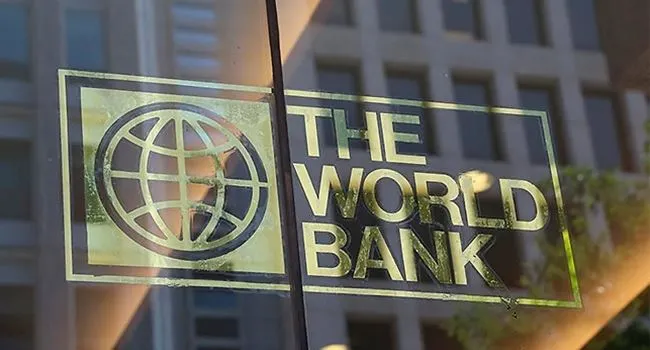Our Terms & Conditions | Our Privacy Policy
Rural poverty in Nigeria now 75%, says World Bank
The World Bank has revealed that a staggering 75.5 per cent of rural dwellers now live below the poverty line in Nigeria.
The Bank disclosed this in its April 2025 Poverty and Equity Brief for Nigeria.
Daily Trust reports that the report paints a bleak picture of rising economic hardship, growing inequality, and persistent underdevelopment across large parts of the country.
SPONSOR AD
According to the report, while 41.3 per cent of Nigeria’s urban population lives in poverty, the situation is significantly worse in rural areas, where economic stagnation, inflation, and insecurity have combined to deepen hardship.
FG borrows N13.21trn from World Bank in 20 months
Zulum seeks World Bank support for Borno’s recovery, flood mitigation
“Based on the most recent official household survey data from Nigeria’s National Bureau of Statistics, 30.9 per cent of Nigerians lived below the international extreme poverty line of $2.15 per person per day in 2018/19 before the COVID-19 pandemic,” the report stated.
“Nigeria remains spatially unequal. The poverty rate in northern geopolitical zones was 46.5 per cent in 2018/19, compared with 13.5 per cent for southern ones. Inequality measured by the Gini index was estimated at 35.1 in 2018/19.
“Nigeria’s Prosperity Gap — the average factor by which individuals’ incomes must be multiplied to attain a prosperity standard of $25 per day for all — is estimated at 10.2, higher than most peers.”
These figures highlight the stark economic divide across different parts of the country, which has persisted despite various interventions aimed at inclusive growth.
In its analysis of demographic trends, the report found that children aged 0 to 14 years had a poverty rate of 72.5 per cent.
Gender disparities were also evident, with 63.9 per cent of females and 63.1 per cent of males classified as poor at the $3.65 per day lower-middle-income poverty line.
Education levels strongly influenced poverty status. Nigerians without any formal education had a poverty rate of 79.5 per cent, those with primary education 61.9 per cent, and those with secondary education 50.0 per cent.
Only individuals with tertiary education saw comparatively lower poverty levels at 25.4 per cent.
The World Bank further noted that multidimensional poverty indicators paint a similarly bleak picture.
About 30.9 per cent of Nigerians survive on less than $2.15 a day, 32.6 per cent do not have access to limited-standard drinking water, 45.1 per cent lack limited-standard sanitation, and 39.4 per cent have no access to electricity.
Additionally, 17.6 per cent of adults have not completed primary education, and 9.0 per cent of households have at least one school-aged child who is not enrolled in school.
Before the COVID-19 pandemic, the report said progress in reducing extreme poverty in Nigeria had nearly stagnated, with the poverty rate declining by only half a percentage point annually since 2010.
Urban living standards among the poor showed little improvement, and the availability of productive jobs remained severely limited.
“Before COVID-19, extreme poverty reduction had almost stagnated, dropping by only half a percentage point annually since 2010. Living standards of the urban poor are hardly improving, and jobs that would allow households to escape poverty are lacking,” the report read.
The World Bank acknowledged recent economic reforms aimed at stabilising the macroeconomy, but warned that high inflation continues to erode purchasing power and deepen poverty, particularly in urban centres where labour incomes have not kept up with rising prices.
In response to the deepening crisis, the Bank recommended urgent reforms to protect vulnerable populations from inflation shocks and boost employment through more productive economic activities.
[ad_1]
Images are for reference only.Images and contents gathered automatic from google or 3rd party sources.All rights on the images and contents are with their legal original owners.
[ad_2]



Comments are closed.